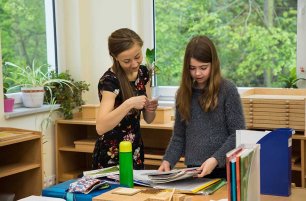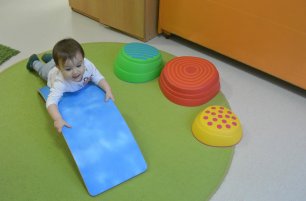Mones
Sorry, this article is only in Czech.

The fundamental aim of Montessori education is to help children become fully-fledged citizens of the world. How do we achieve something so monumental?
Read more
Have you ever noticed that your child enjoys singing the same song over and over again, or wants you to repeat the same story for what feels like a million times? Dr. Montessori highlighted the importance of sensitive periods in children, which are known as windows of opportunities for children to develop skills, including movement, language and most definitely, order. A child’s need for external order is present as early as childbirth and peaks in their second year, before fading at about the age of 5. This period of development helps a child to develop a connection between themselves and the world, process information and overcome challenges.
Read more
We have all had our fair share of complaining about the situation we have found ourselves in since last Spring, but in this article, I wanted to concentrate on the positives this has brought to us.
Read more
Parents today are constantly surrounded by images and ideas of what their children should or shouldn’t have and it can be overwhelming trying to decide what is best for their child’s development. Every parent wants to make good decisions when it comes to the items you choose to bring into your home, but how do we know which ones are more or less beneficial than others?
Read more
Maria Montessori often stated that not only does every human being have an innate drive to understand the environment around them, we all also naturally have what she called a “Mathematical Mind”. In the Montessori classroom, mathematical learning begins through indirect preparation long before a child is ever introduced to any Math materials.
Read more